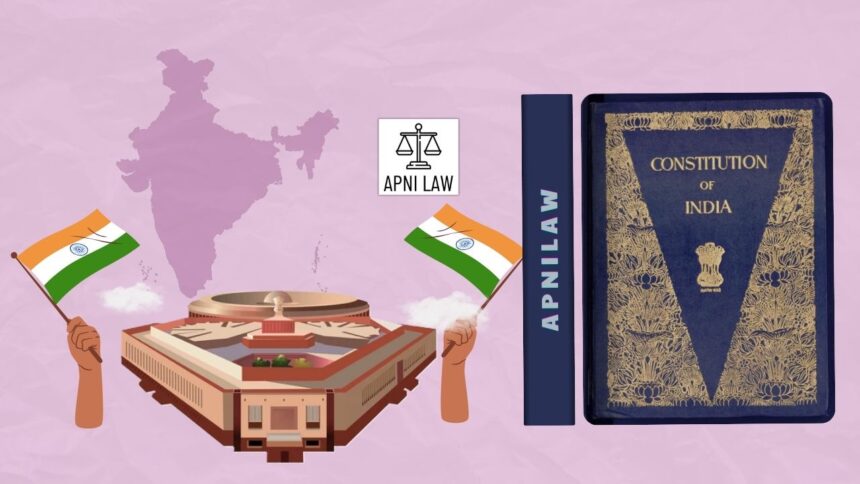Introduction
The Vidhan Parishad, or the State Legislative Council, is the Upper House in states that follow a bicameral legislature. It acts as a permanent revising body and brings experience, continuity, and depth to the law-making system. Although only a few Indian states have a Legislative Council, it continues to play an important role in strengthening democratic deliberation. The Council does not form the government, but it influences legislation and ensures that laws are examined more carefully before implementation.
The framers of the Constitution envisioned the Vidhan Parishad as a chamber that could represent teachers, graduates, local bodies, and distinguished individuals. Its composition therefore promotes broader participation in law-making and ensures that the legislative process reflects diverse social and professional groups. Even though debates continue about its necessity, the Council functions as a consultative and reflective institution.
Constitutional Basis and Composition
The Vidhan Parishad derives authority from Articles 168 to 212 of the Constitution. Unlike the Vidhan Sabha, it is a permanent House and cannot be dissolved. One-third of its members retire every two years, which ensures legislative continuity. Its creation or abolition lies entirely in the hands of Parliament upon recommendation from the concerned state.
Members are elected through a mixed system. Local bodies elect a major portion, while graduates, teachers, the Legislative Assembly, and the Governor’s nominees fill the remaining seats. This method encourages representation from groups that otherwise do not participate directly in electoral politics. The Council’s limited strength also prevents it from overshadowing the popularly elected Vidhan Sabha.
Powers of the Vidhan Parishad
The Vidhan Parishad performs legislative, deliberative, supervisory, and advisory functions. Although its powers remain limited compared to the Vidhan Sabha, its contribution lies in revising and refining legislation. It reduces the possibility of hurried or flawed law-making by taking more time to review bills.
In ordinary law-making, the Council can discuss, suggest amendments, and delay bills, but it cannot override the decisions of the Legislative Assembly. If it rejects or returns a bill, the Assembly may pass it again, and the Parishad must then accept it. This structure ensures that the ultimate law-making power remains with the directly elected House while still allowing the Council to contribute meaningfully.
In financial matters, the Council’s powers are even more restricted. Money Bills can originate only in the Vidhan Sabha. The Parishad can discuss such bills but cannot amend or reject them. It must return the bill within fourteen days. The Assembly may accept or ignore its recommendations. This ensures that taxation and expenditure remain under the control of elected representatives.
Deliberative and Advisory Role
The Vidhan Parishad is often regarded as the House of reason and reflection. It provides time for detailed debates on policies, administrative decisions, and social issues. Members with academic, professional, and grassroots backgrounds contribute valuable perspectives. The absence of the pressure of re-election allows members to approach issues with depth and neutrality.
The Council also acts as a platform to scrutinize government actions. Members ask questions, seek clarifications, and discuss government policies. These deliberations help refine administrative decisions and hold the executive accountable even though the Council does not control the government.
Revisionary Role
One of the most significant functions of the Vidhan Parishad is its ability to revise legislation. Many bills benefit from the Council’s detailed scrutiny. The revising role strengthens the quality of laws by ensuring that provisions do not contradict existing statutes and that their impact is carefully assessed. This function reduces legislative errors and prevents rushed decision-making by the Assembly.
The Council also reviews rules, regulations, and subordinate legislation framed by the government. Through Committee discussions and debates, it ensures that executive authorities do not misuse delegated powers.
Permanent Nature and Continuity
Since it is never dissolved, the Vidhan Parishad maintains stability in law-making. Even when political situations change in the Vidhan Sabha, the Council retains experienced members who guide the legislative process. This continuity helps states maintain consistent policy approaches and prevents abrupt shifts in governance.
The permanent nature of the Council also ensures long-term oversight of state policies, especially when it comes to education, local governance, or welfare schemes. Experienced members contribute to monitoring these sectors over several years.
Checks and Balances in the State Legislature
A second chamber naturally introduces checks and balances in a parliamentary system. The Vidhan Parishad ensures that the Assembly does not act impulsively or pass laws without adequate discussion. It provides institutional space for dissent, expert opinion, and reasoned critique.
This system strengthens cooperative governance. The government must respond to views raised in the Council, even though it is not bound by them. The existence of the Council therefore widens democratic participation and creates opportunities for more inclusive policy debates.
Limitations of the Vidhan Parishad
Despite its usefulness, the Vidhan Parishad faces certain limitations. It cannot block legislation passed by the Assembly. Its recommendations on Money Bills remain non-binding. Moreover, critics argue that Councils may become political rehabilitation centers for leaders who lose elections. Some also believe that maintaining a second chamber is financially burdensome for states with limited resources.
However, supporters argue that these limitations prevent the Council from obstructing governance while still allowing it to improve legislative quality. The real challenge lies in ensuring the selection of competent and diverse members who contribute constructively.
Conclusion
The Vidhan Parishad plays an important role in India’s federal and parliamentary framework. Its strength lies not in power but in perspective. It refines, reviews, and enriches the legislative process. It represents groups that might otherwise remain outside mainstream politics. It acts as a constitutional safeguard that prevents rushed decision-making and promotes deeper debate.
While its powers are limited compared to the Vidhan Sabha, its contribution to legislative quality, administrative oversight, and democratic deliberation remains significant. As long as it continues to function as a House of reflection, the Vidhan Parishad will remain relevant to India’s constitutional vision.
For any specific query call at +91 – 8569843472







